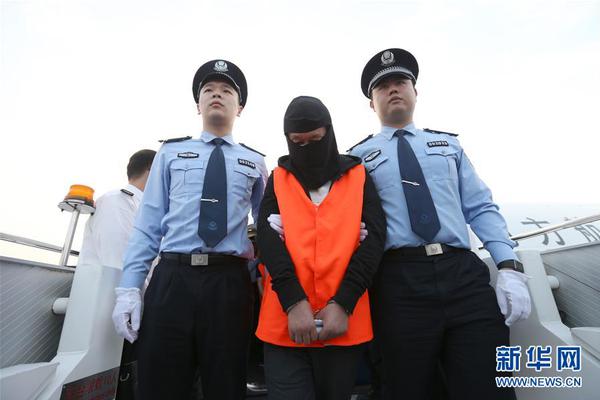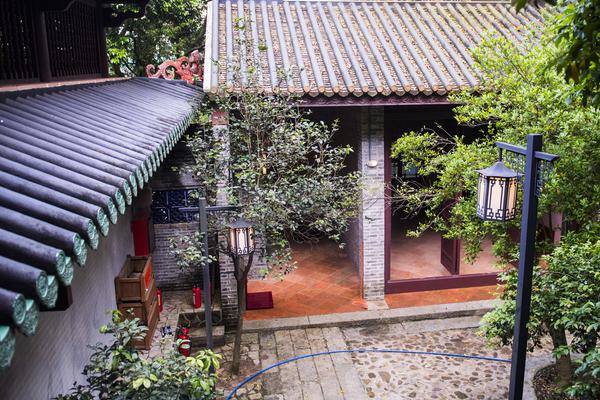This article has been published to coincide with Episode Six of Mashable's new podcast,Thailand Movies | Adult Movies Online Fiction Predictions. Listenhere.
George Orwell's 1984 turns 70 this June, yet it feels more prophetic than ever. Its tale of a future in which a totalitarian regime has assumed full control over an individual's body and mind strikes a nerve in a world where privacy and truth seem constantly under threat.
SEE ALSO: This 18th century prison design predicted the rise of our surveillance society1984 is, in many ways, a handbook for future generations. A warning about the power of surveillance to mould a docile society (the book saw a massive spike in sales back in 2013 following Snowden's revelations about America's National Security Agency's spying program).
It's also a forecast on how attempts to erode public trust in facts and historical records can destabilise democracy (1984 shot to the top of Amazon's best-seller list in 2017 in an apparent response to President Trump's blatant disregard for the truth).
 George Orwell mural picture Southwold, Suffolk, , UK. Credit: UIG via Getty Images
George Orwell mural picture Southwold, Suffolk, , UK. Credit: UIG via Getty Images More and more, the term 'Orwellian' is applied to anything and everything – from China's surveillance state apparatus to Russia's attempts at information warfare. But when everything can be seen to seemingly fit into the grotesque 1984 scenario, the comparisons start to become banal and unoriginal.
So, for the 70th anniversary of the book, we used our Fiction Predictions podcast to dive into its pages looking for answers to a central question – Are we living in 1984?
To help guide us in our journey, we talked to Professor Jean Seaton, Director of the Orwell Foundation and Professor of Media History at the University of Westminster.
The short answer, according to Seaton, is "No, we are not living in 1984." Despite the rise of social media as the ultimate telescreen (everything we do online is collected, down to the smallest details) and propaganda machine (just think of the rise of flat earthers, anti-vaxxers, incels, far-right movements to name but a few), we need to use our words sparingly.
 A demonstrator holds up George Orwell's book '1984' during a rally in Bangkok on February 14, 2015. Credit: AFP/Getty Images
A demonstrator holds up George Orwell's book '1984' during a rally in Bangkok on February 14, 2015. Credit: AFP/Getty Images The future tyranny that Orwell feared, rooted in his witnessing of the rise of totalitarianism in the 1930s and 40s, did not succeed in its total domination. After all, 1984 ends on a note of hope in its final chapter, a chapter "no one bothers to read because it is quite boring," Seaton says. But a chapter, nonetheless, that hints at a future in which Winston Smith's diary, the ultimate transgression, is preserved; a future in which Big Brother is no longer.
It's that sense of hope, mimicked in some ways by the spectacular, yet absolutely unsurprising, fall of socialism in Eastern Europe and the former Soviet Union, that is often overlooked when it comes to 1984'sprescience. But it's that detail that should be seen as the most important and lasting legacy of 1984 when it comes to its foreshadowing of the future. "It reframes everything you’ve read before into something that’s survived, not something that’s disappeared," Seaton says.
Instead of reading 1984with fear and looking at the contemporary world through an Orwellian lens, the book encourages us to not simply sit idly by. Ultimately, it's a guide and warning about how to preserve and protect those things that matter most – truth and history.
The Orwell Foundation stage the UK's first ever live cover-to-cover reading of 1984back in 2017. We encourage you to have a watch:
Topics Books Privacy Politics
(Editor: {typename type="name"/})
 River Plate vs. Monterrey 2025 livestream: Watch Club World Cup for free
River Plate vs. Monterrey 2025 livestream: Watch Club World Cup for free
 Volkswagen, BYD supplier Horizon Robotics files for Hong Kong IPO · TechNode
Volkswagen, BYD supplier Horizon Robotics files for Hong Kong IPO · TechNode
 Xiaomi EV delivery wait time extended to more than five months · TechNode
Xiaomi EV delivery wait time extended to more than five months · TechNode
 China’s Chery, Huawei slash prices of first electric sedan due to delays · TechNode
China’s Chery, Huawei slash prices of first electric sedan due to delays · TechNode
 Thunder vs. Pacers 2025 livestream: Watch Game 7 of NBA Finals for free
Thunder vs. Pacers 2025 livestream: Watch Game 7 of NBA Finals for free
The Real Nvidia GPU Lineup: GeForce RTX 5060 is Actually a Mediocre 5050
 Nvidia's latest generation of graphics cards might look familiar on the surface, but dig into the sp
...[Details]
Nvidia's latest generation of graphics cards might look familiar on the surface, but dig into the sp
...[Details]
Redmi launches Harry Potter Edition of new Turbo 3 smartphone · TechNode
 On Wednesday, Xiaomi sub-brand Redmi hosted the launch event for its new Turbo 3 series and unveiled
...[Details]
On Wednesday, Xiaomi sub-brand Redmi hosted the launch event for its new Turbo 3 series and unveiled
...[Details]
Bilibili overhauls main site operating unit as profitability timeline looms · TechNode
 Bilibili’s main site operating center has been replaced by five relatively independent category unit
...[Details]
Bilibili’s main site operating center has been replaced by five relatively independent category unit
...[Details]
US considers blacklisting CXMT to curb China’s chip progress · TechNode
 The US is considering sanctions on several Chinese tech firms, including chip manufacturer ChangXin
...[Details]
The US is considering sanctions on several Chinese tech firms, including chip manufacturer ChangXin
...[Details]
In Memoriam: The tech that died in 2025 (so far)
 It's hard to believe, but this year is already halfway over. Since January, a lot has happened in th
...[Details]
It's hard to believe, but this year is already halfway over. Since January, a lot has happened in th
...[Details]
Chinese EVs to grab 11% market share in Europe in 2024: NGO · TechNode
 Chinese automakers could increase their combined share of the electric vehicle market in Europe to 1
...[Details]
Chinese automakers could increase their combined share of the electric vehicle market in Europe to 1
...[Details]
Ele.me outlines business plan for the next three years amid leadership reshuffle · TechNode
 Chair of Ele.me Wu Zeming said the new management team has outlined the food delivery arm’s operatin
...[Details]
Chair of Ele.me Wu Zeming said the new management team has outlined the food delivery arm’s operatin
...[Details]
Chinese GenAI venture raises $14 million, claims itself akin to Sora · TechNode
 Chinese GenAI startup AIsphere, aiming to be as powerful as Sora technically within six months, anno
...[Details]
Chinese GenAI startup AIsphere, aiming to be as powerful as Sora technically within six months, anno
...[Details]
Mikey Angelo's 3 essential tools for creating viral content
 You've probably heard of Mikey Angelo, the creator with over 7 million followers across YouTube, Ins
...[Details]
You've probably heard of Mikey Angelo, the creator with over 7 million followers across YouTube, Ins
...[Details]
China’s BYD unveils its latest supercar: the Super 9 · TechNode
 BYD on Tuesday unveiled the first supercar under its premium off-road electric vehicle brand called
...[Details]
BYD on Tuesday unveiled the first supercar under its premium off-road electric vehicle brand called
...[Details]
How TikTok helped Zay Dante launch his music career

JD to invest $138 million into supporting short video content · TechNode

接受PR>=1、BR>=1,流量相当,内容相关类链接。